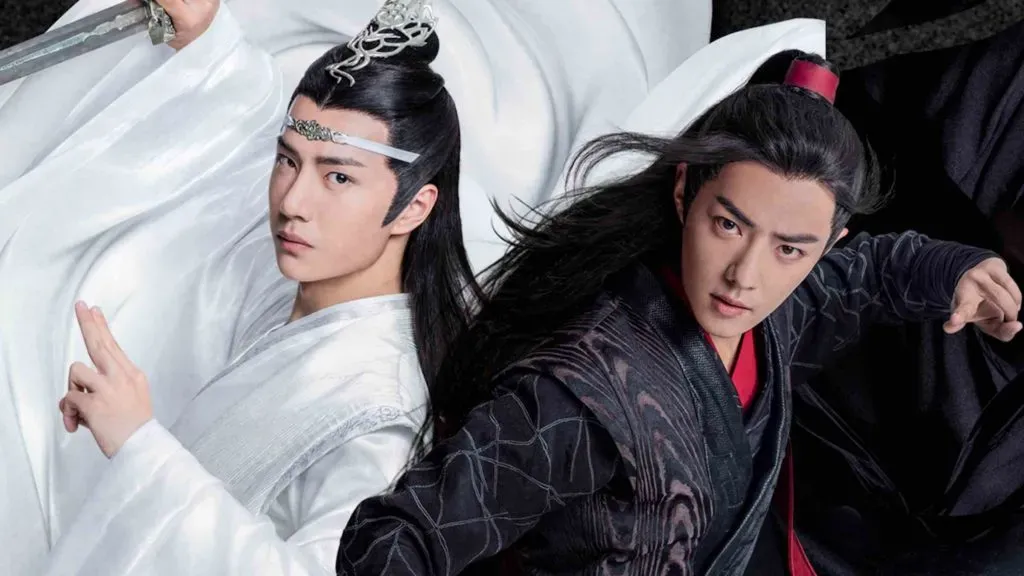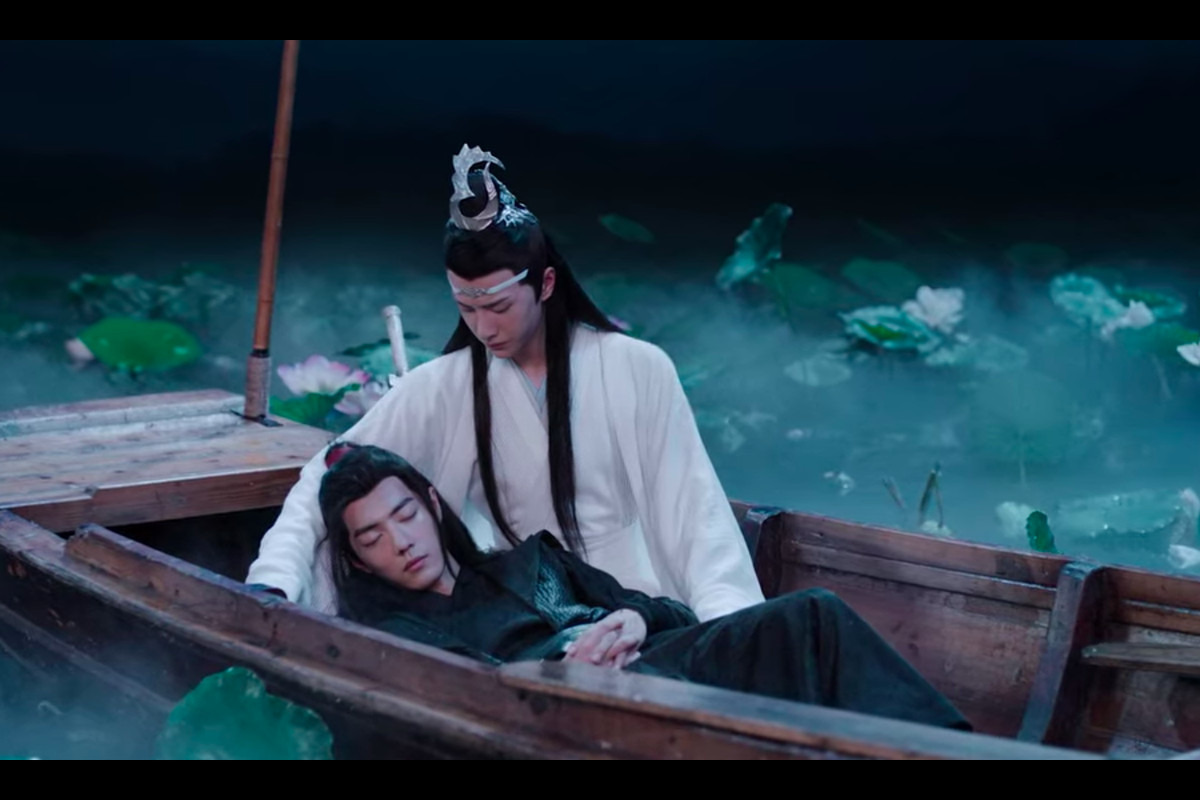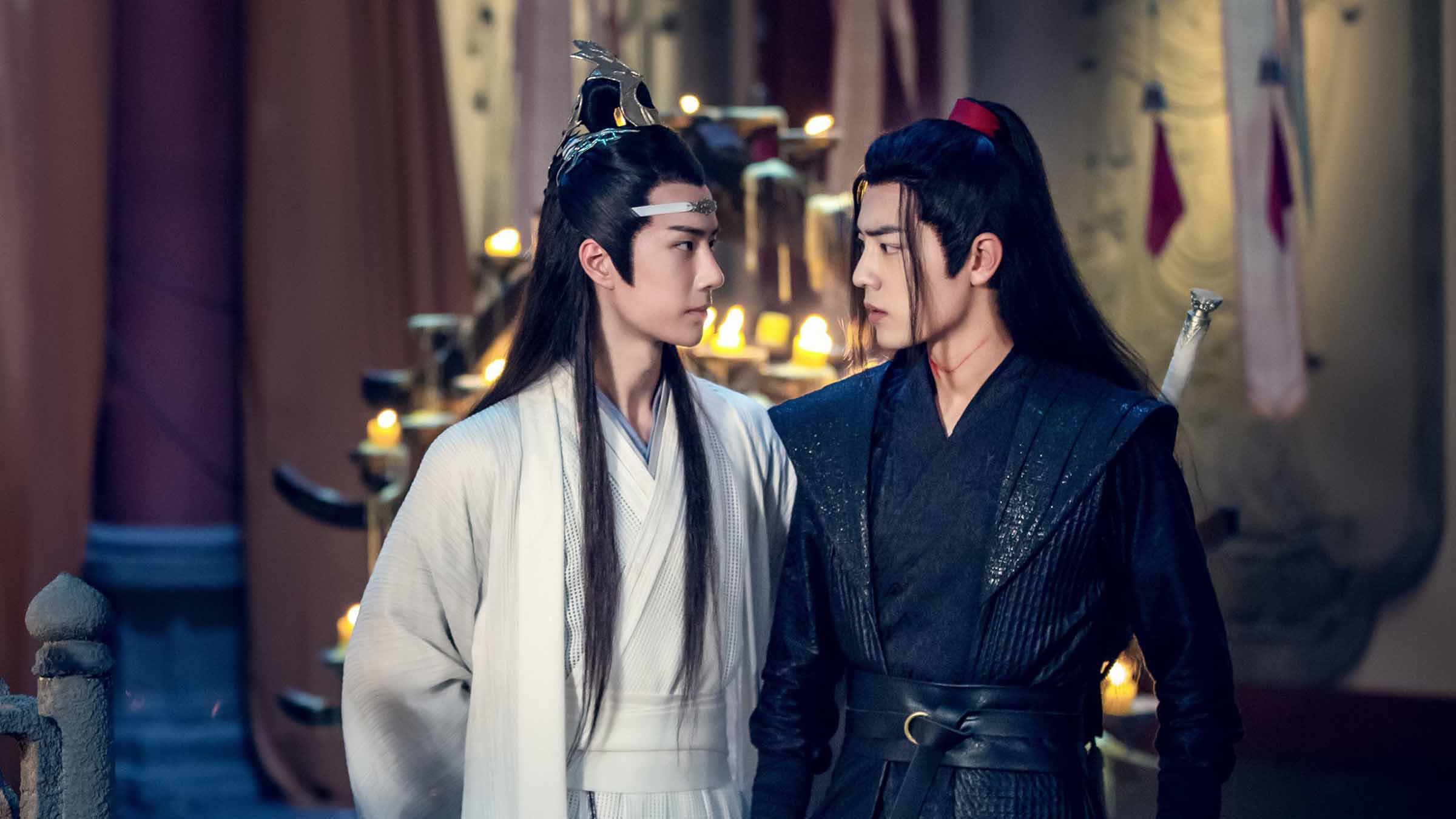How Chinese series The Untamed captures the lives of queer Asian Americans
OR: The Yiling Laozu Experience

(Welcome to the Wednesday newsletter! Each week, I’m publishing a new pop culture essay from a freelancer. Remember: Your subscription fee helps me pay these freelancers for their efforts! This week, I'm publishing on Friday, because I got overwhelmed with work deadlines and couldn't watch the extremely long film Avatar! But you're in for a treat, because this piece is fantastic. This week: Artemis Lin on how Chinese series The Untamed possesses meaningful subtext for queer Asian Americans.)
“I’m going through my Yiling Laozu phase,” I told a friend last summer.
I was referring to when Wei Wuxian, the protagonist of the Chinese drama series The Untamed, fell into despair and consequently lost control of his powers, making casualties out of everyone nearby, including his loved ones. I, too, was experiencing a deep depression, and it was leaking out of me like bad blood, tainting everything in my life — friends, work, sleep — even unearthing the old trauma I thought I’d put to bed long ago. It felt like after months of falling, I had finally hit the bottom of the quarry, and that there was no recovery in sight for me.
But I should have remembered; that dramatic turn wasn’t the end of Wei Wuxian’s story. In fact, it was only the beginning.

If you haven’t been a part of certain online circles, you might have missed The Untamed’s explosion in popularity over the last year, thanks in part to its availability to international audiences on Netflix and YouTube. In Tumblr’s list of top live-action TV show fandoms in 2020, The Untamed landed in the number nine spot, having climbed a whopping 27 places in popularity since the previous year — not bad for a property that requires its viewers to learn archaic naming customs and Taoist magic systems.
The Untamed is just one of the many popular Asian dramas in the boys love (BL) genre, which depicts love between men. The series is also classified as “xianxia,” a Chinese fantasy subgenre based on Taoist magic. The Untamed features a compelling cast of characters, including its two male leads: Wei Wuxian, a precocious young cultivator (or, a magic user in xianxia) who enjoys flouting the rules, and Lan Wangji, his stoic and strait-laced peer. Hot and cold, the two obviously clash at first as rivals, then bond quickly over their shared values of justice.
Though the show isn’t allowed to explicitly state that the leads fall in love, due to strict Chinese censorship laws, the writing and direction are certainly suggestive — and romantic — enough that all viewers have to do is read between the lines to find the true story. Couple that with beautiful cinematography, jaw-dropping costume and production design, and a cast of good-looking youths, and it’s easy to see why The Untamed has been such a cross-cultural hit. It’s still easy to find a thriving fandom on Twitter and Tumblr consistently cranking out content, and the first episode, at time of writing, has racked up 8.1M views on YouTube.
There have been popular Chinese media exports before, but the size of The Untamed’s international fandom feels unprecedented. It’s particularly appealing to queer Asian Americans, whose experiences are rarely depicted in American media, especially when regarding our specific traumas around familial rejection and cultural clashes. Many of us, therefore, turn to Asian dramas and webcomics, which feature a rich variety of queer stories to choose from.
Wei Wuxian’s story is an almost perfect metaphor for the queer Asian American experience. He first draws scorn and derision for daring to suggest an alternative to traditional cultivation; he wants to try harnessing the energy from resentful spirits, or “demonic cultivation,” as it’s called. This is deemed a “forbidden” practice, but when he asks why, he’s given no clear answers. He only invites further trouble when he defends a group of people who are being persecuted by the cultivation world, and is forced to flee with them after he accidentally kills their captors. One can certainly draw a direct parallel between queerness and demonic cultivation, and the resulting social ostracization that comes from not aligning to societal pressures.
The expectation to conform might feel familiar to queer Asian Americans, many of whom were raised to prioritize “keeping the peace” rather than causing trouble for the rest of the family. This runs counter to mainstream American narratives of queerness, which position “coming out” as an integral part of the queer experience, at the risk of alienating intolerant family members in order to live authentically. But so many queer Asian Americans, including myself, choose to stay closeted in front of their families, fearful of their very likely rejection.
There are scant depictions of this in American media. The first that comes to mind is Saving Face (2004), the directorial debut of Alice Wu (who seems to have created almost all the movies about Chinese American lesbians, revisiting the topic again in 2020’s fantastic The Half of It). Much of Saving Face is about the protagonist’s decision to keep her girlfriend secret from her mother, to the detriment of the relationship itself. Ang Lee’s The Wedding Banquet (1993) also hinges on this double life, to the extent of engaging in a sham marriage. A much more recent example is how drag queen Kim Chi, even after appearing on RuPaul’s Drag Race, never came out to her mother. RuPaul was shocked to hear that declaration, but I wasn’t. In fact, it was par for course. I can live as openly as I want in Los Angeles as a non-binary queer person, but if I’m ever home with my parents in New York, that life has to disappear.
Wei Wuxian, therefore, is a bit of an enviable figure for all of us who can’t be so open and brave, even if we know the cost of that bravery is often loneliness. After Wei Wuxian is essentially exiled from society, Lan Wangji visits him, with some hope that Wei Wuxian might return home. But “who cares about the crowded, broad road?” Wei Wuxian asks. “I’ll stick to my single-log bridge until night falls.”
Why do I love Wei Wuxian so much? Well, for one, he’s the archetypal trickster, my favorite character trope ever since my mom made the connection between Sun Wukong, the Monkey King, and myself, a Monkey in the Chinese zodiac.
But it’s also because I identify deeply with the trauma that he experiences. Wei Wuxian and I share a contentious relationship with our maternal figures, who were emotionally and physically abusive and tended to blame us for everything that went wrong, even when it could not have been our fault logically. Wei Wuxian’s adoptive mother’s abuse is only shown in several short scenes, but as someone who knows the play-by-play of these dark moments, those short scenes are all I need to see to understand him. His jovial exterior meant to hide a much softer, more vulnerable heart; his tendency for self-sacrifice, isolation, and loneliness — these are all habits I have a deep intimacy with.
Of course, this is many Asian Americans’ experiences — but because I never saw it discussed in popular media, I often thought of my upbringing as an outlier. It wasn’t until I started talking to other second-generation Asian Americans that I discovered the striking similarities in our childhood stories. We’ve even joked that there must be a playbook our toxic mothers are all referencing, because so many of our stories are the same. All of us also expressed that we wish we saw more of this reflected in our media. There’s a fear among minority groups of negative portrayals of our cultures in media, out of fear of what that might say of us as a whole, or what cishet white Americans might use against us — and that fear is real. But the downside is that otherwise, we each individually wither in our solitudes, until pain upon pain compounds into trauma.
And the thing about trauma is that it’s often difficult to express in words. Then it sits, empty, in the bottom of your soul, threatening to implode any time anyone nudges their foot too close. This can be especially true for Asian folks. Our parents and grandparents and great grandparents all suffered terrible tragedies and moved on, often never talking about them. There’s a cultural gap of misunderstanding: the older generation doesn’t understand why we don’t just buck up and do the same. We have been taught to cultivate a culture of silence.
For these reasons, fiction is particularly freeing: It provides a conduit for expression that we otherwise wouldn’t have. In Wei Wuxian, I find my alternate history mapped: an abusive mother; a general sense of isolation; a tendency to shoulder other people’s burdens and face the world on my own, often with a trickster’s smile to mask a hidden pain.
At the very nadir of his story, having found out that his friends sacrificed themselves for his mistakes, having lost everything, Wei Wuxian breaks down and becomes the feared Yiling Laozu. He stands on top of a building, facing his enemies below, with tears streaming down his face and blood from his mouth, laughing. It’s the kind of laughter you are only capable of when you have lost everything. I return to this image often in my head. It is a mirror I have to look at, the only one clear enough to reflect who I am.

You might think it strange for me to cleave so closely to a character who’s clearly done wrong. But I think it’s reasonable for queer people, who have often been taught we’re going down a “wicked path.” There’s a reason we enjoy reveling in queer-coded villains, or why Lil Nas X chose to descend to hell and lapdance for Satan in his music video for “MONTERO (Call Me By Your Name).” Reclaiming the parts of ourselves that have been deemed evil feels powerful. Similarly, even though Wei Wuxian is continuously condemned throughout the series for dabbling in demonic cultivation, it’s not his methods that lead him to cause harm — it’s the lack of support from his friends, family, and community. It’s that the society he lives in chooses to paint him as the enemy. How else should he act?
The Untamed opens with its main character’s death, which is always a bold way to start a story. It’s quickly revealed that 16 years later, another cultivator had brought Wei Wuxian back to life (at the cost of the cultivator’s own) in order to fight against a threat to the cultivation world. As Wei Wuxian tries to figure out how to navigate a world where he’s still very much a wanted man, he unintentionally reunites with Lan Wangji, who aids him in uncovering the real villain of the series.
What’s most interesting is that after he’s revived, Wei Wuxian still uses his “wily tricks,” but with Lan Wangji’s unconditional support, he’s able to use his skills to protect his loved ones. Wei Wuxian’s methods, the show is careful to say, aren’t exactly wrong, they’re just different from what’s assumed as the norm — and in their difference, danger is perceived.
Of course, Wei Wuxian has caused undeniable harm, having killed numerous people during his lapse into darkness. But after he returns to the living, he becomes a model for accountability. He apologizes for the wrong he’s caused, and he never expects forgiveness. Instead, he takes active steps to try and correct what he destroyed, while also acknowledging certain deeds can never be fixed or taken back. Wei Wuxian is so human in this way — capable of both good and evil. In his redemptive arc, we can seek a little redemption for ourselves as well.
You can be forgiven, The Untamed says. There is happiness and healing down the road for all of us; we’re all only devastatingly human.
There is hope, after all.
After a grueling 30 episodes of watching Wei Wuxian’s life slowly unravel, the second half of The Untamed takes a positive turn and becomes a full display for radical queer contentment. Wei Wuxian and Lan Wangji, sixteen years later, are noticeably wiser, gradually settling any previous misunderstandings between them and clearing a way for mutual support. Though the show isn’t allowed to be explicitly queer, Lan Wangji’s later declaration that he would “stick to a single-log bridge” with Wei Wuxian, even if it meant going up against the entire world, is basically an admission of love. Wei Wuxian is able to find closure with his past, and find peace with the one person who was able to see the true heart of him.
When the series closes, Wei Wuxian is a happy man. He bears his radiant, joyous smile for all the world to see. I believe in that smile, I really do. It tells me one day that joy, too, might arrive for me. Maybe I’ll finally be able to close some old wounds and not be so afraid of my friends’ kindness. Maybe one day I can be more open with who I am and, like Wei Wuxian, stick to walking along my single-log bridge until night falls.
Episodes is published three times per week. Mondays feature my thoughts on assorted topics. Wednesdays offer pop culture thoughts from freelance writers. Fridays are TV recaps written by myself. The Wednesday and Friday editions are only available to subscribers. Suggest topics for future installments via email or on Twitter. Read more of my work at Vox.


